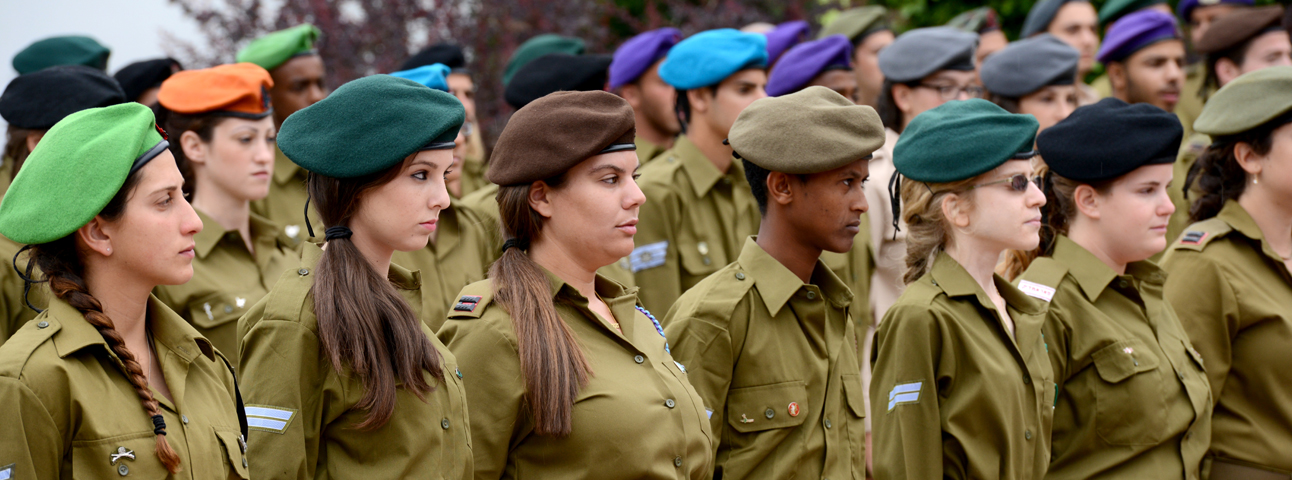
Illustration | Flash 90
Prof. Sam Lehman-Wilzig: Israeli Women from Army Major to City Mayor
Israel’s once-in-every-five-years municipal elections coincided last week with the country’s five-month war in Gaza. Each were (and are) covered widely in the press, but separately. However, they are connected, although their great influence will be felt in future years.
As the world just commemorated International Women’s Day it is altogether fitting to ask: war and women – what’s the common denominator? The answer: female empowerment.
Since the 1990s, Israel has been involved in a running controversy: to what extent should women serve in combat roles in the IDF? To shorten a long story, by the early 2020s they were incorporated into approximately 90% of all Israeli army units – from Air Force pilots and navigators to battlefield paramedics, tank commanders, and border lookout observers (tatzpitaniyot). The latter were very important leading up to the Gaza War; for months before Oct. 7 they warned their male officer bosses about very suspicious, Hamas offensive training movements – but to no avail. When Hamas finally did attack, many of these women heroically fought them off, even trampling some of the Hamas combatants under IDF tanks that the young female fighters drove themselves! And they continue today to be a critical part of the fighting in Gaza as well.
The argument as to whether women “are up to the job” is basically over. The answer is clearly and resoundingly positive. Indeed, just last week the IDF announced the appointment of the first woman to head an entire Air Force base. The one remaining issue is how to incorporate female fighters into infantry units with religious male soldiers; they have a Jewish Law problem sleeping in the same tent (and even serving together in the same confined tank). But that’s a minor issue. The future is clear: given that the IDF has already admitted it needs more manpower (very recently raising the service period for recruits and extending upwards the retirement age of reservists), a decision to widen the number of positions that women can fill in the IDF has become a no-brainer. Need more manpower? Try womanpower!
For feminists (and the country in general), that’s the good news. However, when turning our attention to the municipal scene in Israel, the picture is far from acceptable, although the recent elections did provide some heartening news. In the previous term of office only about 10% of city council members were women nationwide; that now has increased to about 15%. As for mayors and heads of regional councils (the equivalent of mayor for small moshavim, kibbutzim, and other towns in a specific geographical area), of the previously fourteen women mayors , eight won their election, seven new ones were voted into office, and a few more should win the second round runoff this coming Tuesday. That’s a step forward, but hardly a giant one for womankind.
How is this connected to women in the IDF? For understandable reasons, Israel has always looked to top, retired IDF officers (or those with a “heroic” reputation) to lead the country. A short list: Rabin, Dayan, Alon, Shamir (pre-state service), Sharon, Kahalani, Netanyahu, Mofaz, Gantz, Eizenkopf, Gallant, and so on. As noted, women didn’t serve in any “serious” roles until the 1990s, and thus it took a couple of decades to reach high level positions and ultimately make it into politics (e.g., former IDF spokeswoman Miri Regev).
But can they reach (near) the top? Here too the recent municipal elections provide a clue. Ron Huldai (another former high level IDF officer) has been the extremely popular mayor of Tel Aviv for five terms (25 years!) – virtually invincible. But last week Orna Barbibai, a retired major general (the first woman ever to achieve the IDF’s second highest rank, as head of its Manpower Division), ran against Huldai and came very close to unseating him.
However, it is not merely the attainment of a high-level army position in and of itself that will make a difference. The “problem” with many women (in general) is that they don’t have the same high degree of self-confidence that most men have (many males, though, suffer from a high degree of overconfidence in their abilities). Serving in the IDF is an excellent antidote, as many young women IDF fighters have admitted. They have proved not only to others but more importantly to themselves that indeed “they can do it” – a huge step forward to ambition in “real” life as well. After all, when you’ve made it through very tough basic training, then succeeded in demanding officer training courses, and finally leading men in combat, also making decisions as equals with male colleagues in times of war – well, running a city is easy compared with that! (Even if not quite true, but at least the confidence is there to succeed in political affairs equally as well).
Wars tend to have unintended consequences – many negative, but some surprisingly positive. In the coming years, Israel will find that once released the female genie cannot be returned to its bottle. Quite the reverse: this genie will bring many fresh female resources to the country – not only militarily but especially politically.








